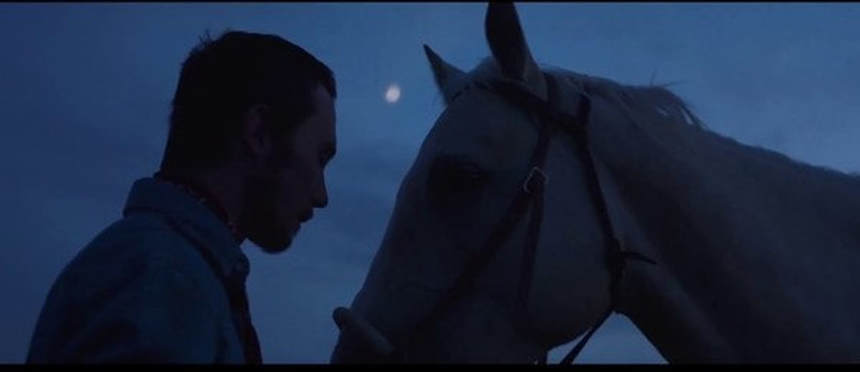|
Attempting to deconstruct the catastrophic internal trauma one experiences when their own perceived identity is shattered by the uncontrollable external forces of life, Chloé Zhao's The Rider is an poignant, reflective character study, one that details the life of a young cowboy, Brady, who desperately attempts to hold onto his lifelong rodeo dream in the aftermath of a near fatal head injury. Impressionistic in its ability to transport the viewer into the psyche of its main protagonist, The Rider works best as a piercing, intricate character study, one which is honest and genuine in its attempt to capture the pain associated with an individual seeing their dreams being stripped away from them. Through the eyes of Brady, The Rider exhibits the internal forces of his struggle, with the quintessential essence of this man's identity, defined by his passion for rodeo, being stripped away from him in an instant. It's not only his dream that is taken from him, but also his social and economic capital, with his skills being rendered useless by this injury, and his worth declining due to a culture values toughness and self-determination and devalues weakness, granting access to those whom prove themselves. While The Rider's character study is respectful, nuanced, and organic, they stand in stark contrast to the thematic elements of the story which rely far too much on didactic narrative moments, and caricatures to extrapolate its commentary. The film's larger cultural critique centered around masculinity and heartland culture doesn't work as well its its nuanced character study elements, never quite congealing to the driving force of the story, its main characterization. The Rider is respectful of this culture as it pertains to its lead character, yet it's autocratic in its distaste for such things at times, never really attempting to understand the world its character's love. The Rider makes little effort, using nearly all the supporting characters as molds to drive its critique of the rodeo lifestyle. The best example of how these narrative/character flaws cheapen the film's thematic assertions is the characterization of Brady's father; a drunk, dead-beat father, who serves little purpose outside of pushing the narrative and theme forward. This dead-beat dad is a character who is used to inform us about Brady inorganically, even being a potential example of what Brady may become. Unfortunately, the way he is injected into the story feels lazy, at least compared to the larger, soulful moments related to Brady's internal struggle to find his new sense of identity and purpose. In its critique, The Rider makes Brady a victim which is careless given the talent of the filmmakers, never making an effort to appreciate the intoxicating, visceral nature of the sport nor attempting to understand why the risks associated with such an activity as the Rodeo is well-known, and accepted; The freeing nature of the Rodeo, how this culture is intrinsically a part of this character's identity is explored but done so with a judgmental lens, which leads to the film's thematic ideals coming off as a shrewd, overly simplistic commentary on "toxic masculinity". All things considered, The Rider is still an extremely well-crafted, compelling feature, one with a noble message about respecting the aspects of life that are bigger than one's own primal self-interest, as Chloé Zhao' delivers another soulful character study.
0 Comments
Leave a Reply. |
AuthorLove of all things cinema brought me here. Archives
June 2023
|

 RSS Feed
RSS Feed
